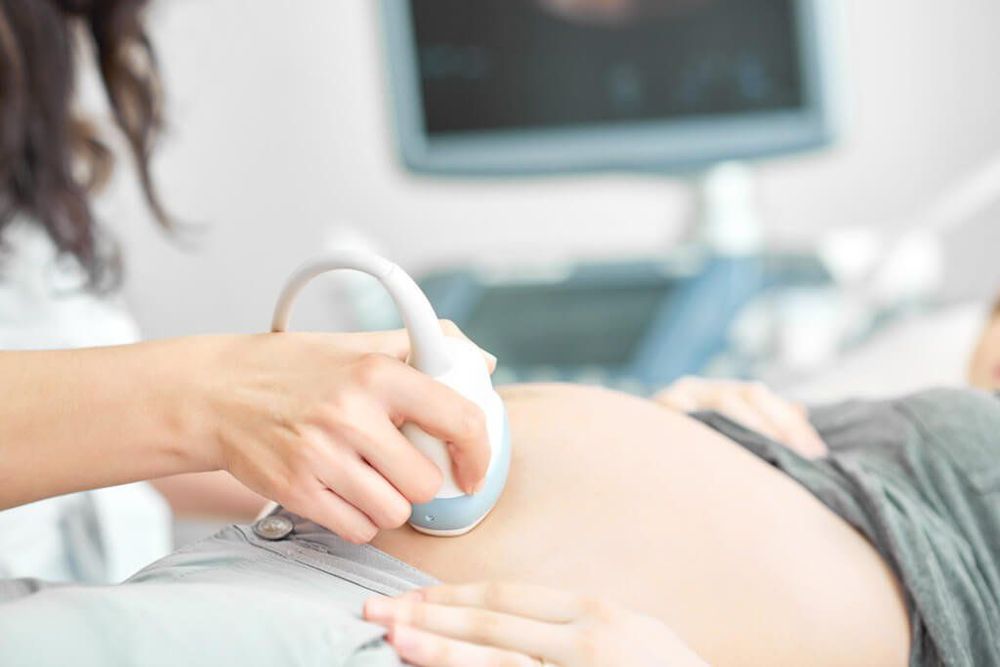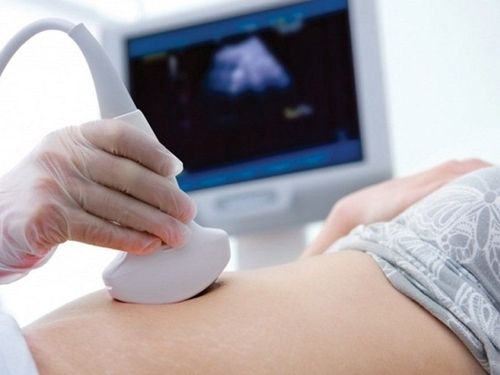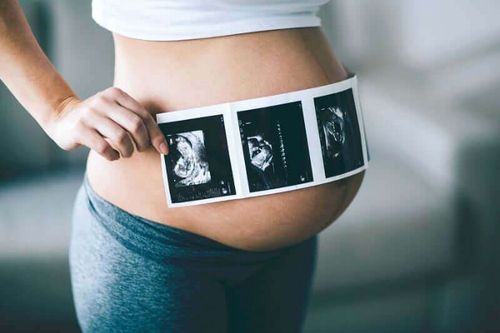This is an automatically translated article.
The article was professionally consulted by Dr. Nguyen Anh Tu - Doctor of Obstetric Ultrasound - Prenatal Diagnosis - Obstetrics Department - Vinmec Hai Phong International General Hospital.During pregnancy, the mother will have many ultrasounds, so that the doctor can assess the growth and development of the fetus and the health of the mother. So, is it good to have multiple pregnancy ultrasounds?
1. Types of fetal ultrasound today?
Fetal ultrasound is an imaging technique that uses sound waves to create images of the fetus in the uterus. Fetal ultrasound is performed periodically at each stage of pregnancy to confirm fetal development and estimate gestational age. The fetus is developing well, the mother will continue to have ultrasound in the following months until delivery. If a problem is suspected, your doctor may order regular follow-up ultrasounds or perform additional imaging techniques such as an MRI scan.
Recommended video:
Is multiple pregnancy ultrasounds good? How is fetal ultrasound at Vinmec?
There are two main types of pregnancy ultrasound:
Transvaginal ultrasound: With this type of pregnancy ultrasound, a wand-shaped device called a transducer is placed in the woman's vagina to emit waves. sound and collect the reflected waves to create an image of the fetus. Transvaginal ultrasound is used during the first months of pregnancy. Alternatively, this type of ultrasound may also be done if an abdominal ultrasound does not provide enough information. Abdominal Ultrasound: A fetal ultrasound is performed by moving the transducer over the woman's abdominal wall. There are many different types of transabdominal ultrasounds available today, including:
3D ultrasound : This type of ultrasound is sometimes used to help doctors detect facial abnormalities or neural tube defects. fetal menstrual cycle. Doppler ultrasound: Doppler ultrasound measures small changes in ultrasound waves as they bounce off moving objects, such as blood cells. The technique can provide details about the fetal blood flow. Fetal echocardiography: This technique examines and provides detailed images of the fetal heart, which the doctor then uses to identify congenital heart defects.
2. Why do pregnant women need ultrasound?

Perform ultrasound in the first trimester to confirm pregnancy, the size and position of the fetus determine the number of fetuses and estimate the gestational age. Ultrasound can also be used to screen for genetic diseases during the first trimester and to screen for abnormalities of the uterus or cervix.
During the next and third trimester, ultrasound is done to evaluate some fetal features such as anatomical features. Timing usually takes place between 18 weeks and 20 weeks.
Doctors use fetal ultrasound diagnostic techniques to:
Confirm pregnancy and fetal position: Some fetuses may develop develop outside the uterus, in the fallopian tubes. Therefore, pregnancy ultrasound can help doctors detect ectopic pregnancy for timely treatment. Determining gestational age: Once your gestational age is known, your doctor will predict your due date and schedule and track other important milestones throughout your pregnancy. Confirm the number of babies: If the doctor suspects a multiple pregnancy, an ultrasound is done to detect the number of fetuses in the uterus. Assess fetal growth: Your doctor uses ultrasound to determine if your baby is growing at a normal rate and to monitor your baby's movements, breathing, and heart rate. Evaluation of placenta and amniotic fluid. Identify birth defects. Find the cause of unusual symptoms: If you have bleeding or other complications, an ultrasound can help your doctor determine the cause. Performing other tests: Your doctor may use ultrasound to guide needle placement during prenatal tests such as amniocentesis or chorionic villus sampling. Determine the position of the fetus before birth.
3. Are there many pregnancy ultrasounds?
According to a recent new study, ultrasound does not cause any long-term harm to the developing fetus in the uterus. The researchers compared the physical growth and development of about 2,700 children aged 1, 2, 3, 5 and 8. All of the children had an ultrasound during pregnancy, of which about half had She had at least five ultrasounds during her pregnancy and only once in the other half.
Results showed that the size of infants was similar in both groups and there were no significant differences in speech, language, behavior and neurodevelopment between the two groups.
At Vinmec International General Hospital, with the most modern equipment, with the most advanced ultrasound machines in the world and a team of experienced obstetricians in prenatal diagnosis and intervention will be A reliable address for obstetric monitoring and early detection of fetal malformations.
Please dial HOTLINE for more information or register for an appointment HERE. Download MyVinmec app to make appointments faster and to manage your bookings easily.
Recommended video:Taking care of pregnant women's health: Feelings pregnant women need to know














